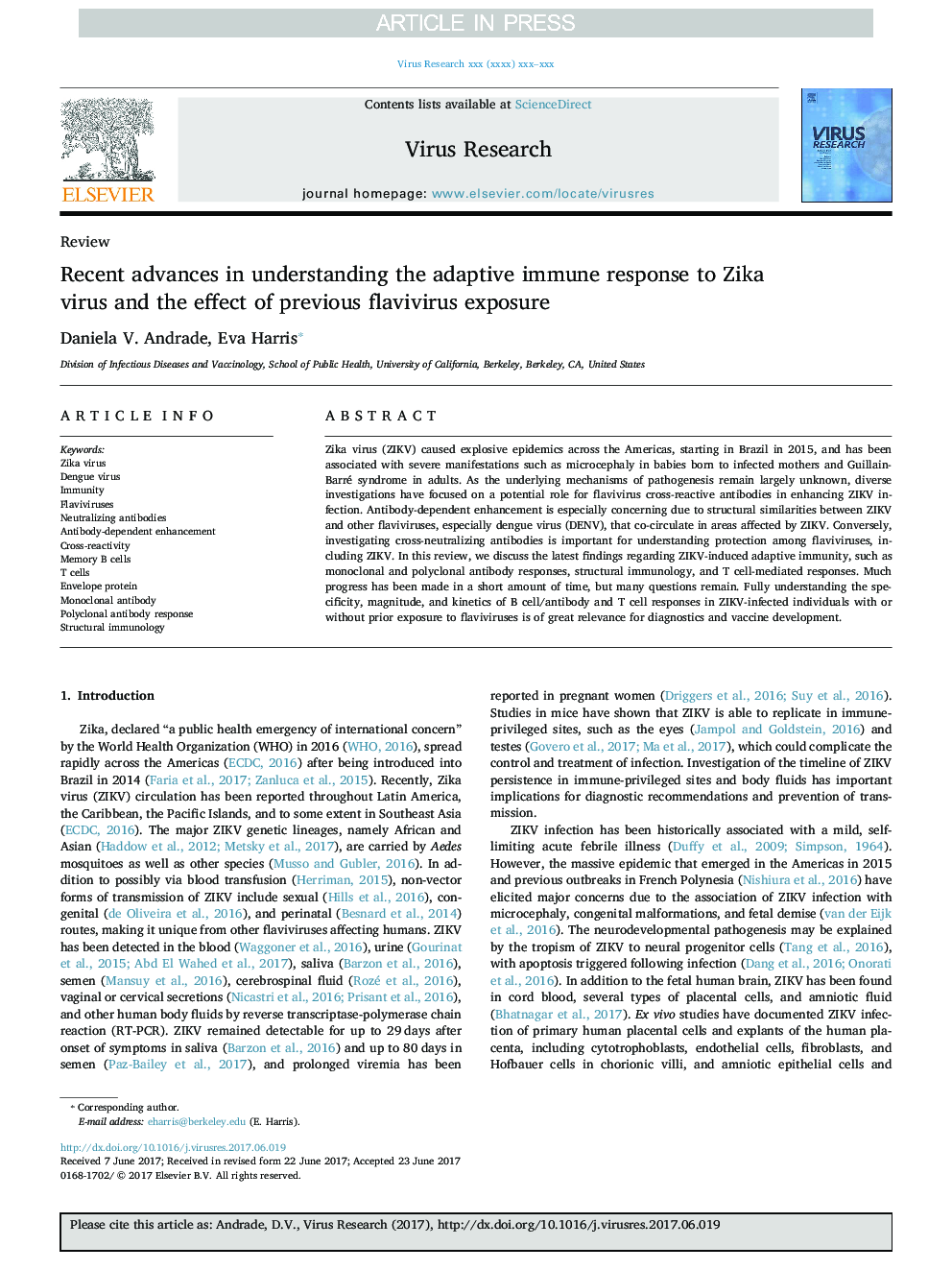| Article ID | Journal | Published Year | Pages | File Type |
|---|---|---|---|---|
| 8751705 | Virus Research | 2018 | 7 Pages |
Abstract
Zika virus (ZIKV) caused explosive epidemics across the Americas, starting in Brazil in 2015, and has been associated with severe manifestations such as microcephaly in babies born to infected mothers and Guillain-Barré syndrome in adults. As the underlying mechanisms of pathogenesis remain largely unknown, diverse investigations have focused on a potential role for flavivirus cross-reactive antibodies in enhancing ZIKV infection. Antibody-dependent enhancement is especially concerning due to structural similarities between ZIKV and other flaviviruses, especially dengue virus (DENV), that co-circulate in areas affected by ZIKV. Conversely, investigating cross-neutralizing antibodies is important for understanding protection among flaviviruses, including ZIKV. In this review, we discuss the latest findings regarding ZIKV-induced adaptive immunity, such as monoclonal and polyclonal antibody responses, structural immunology, and T cell-mediated responses. Much progress has been made in a short amount of time, but many questions remain. Fully understanding the specificity, magnitude, and kinetics of B cell/antibody and T cell responses in ZIKV-infected individuals with or without prior exposure to flaviviruses is of great relevance for diagnostics and vaccine development.
Keywords
Related Topics
Life Sciences
Immunology and Microbiology
Virology
Authors
Daniela V. Andrade, Eva Harris,
